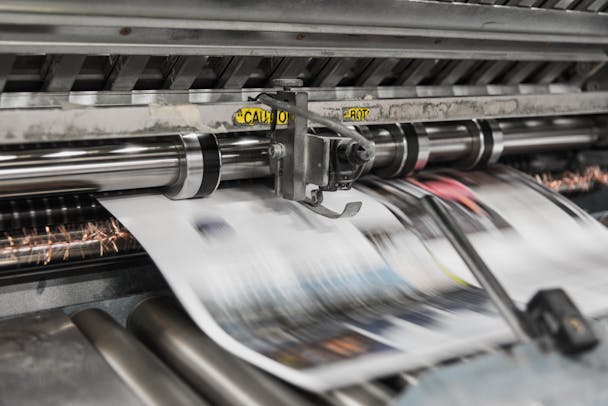Why print journal advertising is still essential to omnichannel healthcare marketing
Say it with us: print is not dead! Especially not in healthcare marketing, writes Space & Time’s Tom Gillan – where it plays an important role in events-led strategies.

Is print advertising still essential in healthcare marketing? / Bank Phrom via Unsplash
When tailoring user journeys to a specific healthcare professional (HCP) audience, keeping print journal advertising in mind is imperative.
While online media dominates most campaigns for many advertisers, these journals still have considerable value for HCP activity. They offer extensive reach to a specific audience, are embedded in trusted publishing networks, and seamlessly integrate with congress events. Combining print journals with other media strategies, such as digital and out-of-home (OOH), brands can create a more comprehensive user journey.
While the industry has witnessed a shift away from print advertising in recent years, embracing the spirit of omnichannel marketing requires the inclusion of print. Here, let’s look at some valuable insights for aspiring congress media planners looking to leverage print journals as a potent traffic-driving tool.
Advertisement
1. Targeted journal selection
The most important factor in print journal advertising for congress events is having access to a targeted selection of journals. At Space & Time, we work with trusted industry partners such as Elsevier, Springer, BMJ, Wiley, and Oxford University Press to tap into an expansive pool of specialized HCPs.
When selecting, we first check whether one of our industry partners hosts an official journal of that congress. Then, secondly, we seek out journals with a strong reach in the specific medical specialties or therapeutic areas relevant to our client’s pharmaceutical product or congress.
When selecting journals, conduct independent research and consult the Scimago Journal Rankings.
2. Congress event integration
At medical congress events, distributing print journals with pharmaceutical ads can be a powerful way to create “mental availability” among HCPs. This provides delegates with an advertorial supplement to take home and joins together a seamless journey for your target HCPs, from digital ads to congress sponsorship to print advertising.
Create ad content tailored to the event or congress theme; this will make the ads more relevant and engaging for the attending HCPs. This may be achieved with greater success by including a clear and compelling call to action (CTA) in your print ads. The CTA should instruct HCPs on their next steps after seeing the ad. A CTA like “Attend our booth at the upcoming congress” can be used in conjunction with a QR code, bridging your physical and digital journeys and ensuring the measurable success of your traffic-driving mechanisms.
Advertisement
3. Omnichannel
Making use of print ads means you will be able to connect with audiences who prefer traditional media, particularly older healthcare professionals who frequently engage with print journals. The omnichannel approach allows brands to build incremental reach among people who can only be reached in print, as well as driving greater frequency among those who consume a broader range of media.
Reuters’ projections anticipate a substantial 21% reduction in the “total promotional budget for print” by 2025, encompassing categories like ‘hard copy reprints,’ ‘medical textbook sponsorship,’ and 'outserts.’ Nevertheless, Reuters highlights the undeniable diversity among healthcare professionals, emphasizing that “No two HCPs are the same.” Engagement levels across different media tactics fluctuate based on location, age, gender, and specialty. Consequently, while an overall reduction in print spending is anticipated, overlooking print as a vital component of an omnichannel approach would be a missed opportunity to engage a diverse audience effectively. It’s also possible to view the anticipated drop in print ad spend as an opportunity; with less activity placed, cut through and share of voice will increase for a given budget.
4. Consistent branding
Consistent branding entails aligning your brand’s visual identity in the eyes of the HCP. This may include messages and communication style, as well as brand identity, applying not only to print but to all campaign activities. This consistent approach helps to build a strong and enduring brand presence in the minds of your target audience. Aligning the look of your printed ads and digital journey with the feel of the booth at congress can help make for a memorable congress experience.
Properly planned and effectively bought print journal advertising remains a fundamental component of a comprehensive marketing strategy, particularly when targeting healthcare professionals at congress events. These publications provide extensive reach, benefiting from established credibility within trusted publishing networks. By selecting targeted journals, integrating print with digital efforts, adopting omnichannel practices, and maintaining brand consistency, you can effectively navigate the evolving landscape of healthcare marketing.
Suggested newsletters for you
Content by The Drum Network member:

Space & Time
Space & Time is a growth marketing agency, enabling clients to secure optimal value from every part of the customer experience and their marketing investment....
Find out more
